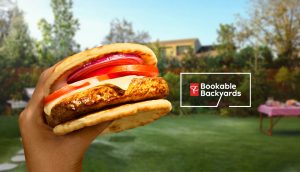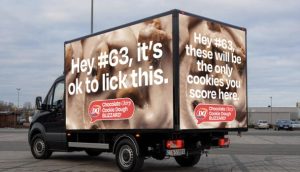Justin Trudeau became the first Canadian prime minister to expand his social strategy to Periscope when his live-streamed oath-taking ceremony earned the 43-year old politician 5,000 views and more than 8,000 “hearts.”
The swearing-in ceremony earned Trudeau over 11,000 hashtag mentions under #swearingin. Since then over 120,000 mentions have been made of Trudeau on Twitter compared with 3,900 of the outgoing prime minister.
The use of social media during election campaigns marks a change from the traditional television and radio advertising appraoch. In 2011, in the run up to elections week Elections Canada topped Media Monitor’s radio advertising list in Montreal, coming in second in Toronto; that didn’t happen this year. In 2015, the elections body took on a more diversified approach, reaching out to engaged Canadians on social. In October it announced a pact with Facebook Canada to drive Canadians to share their voting status on the social network
While mainstream television was still a major space for advertising with the Conservative Party dominating with its messaging, activism and engagement on social platforms shows a change in strategy in how voters can be micro-targeted through posts and paid advertising.
With the kind of data Facebook can offer about users (age, gender, location, and so on), the use of social data by Canadians shows that social is likely to be used much more in forthcoming political campaigns.
The most popular new member of the Trudeau cabinet on the social platform is Canada’s new minister of national defence, Harjit Sajjan, whose official welcome from the Liberal Party was the most retweeted. Meanwhile the top-tweeted new cabinet members are Catherine McKenna, Kent Hehr, Jody Wilson-Raybould, Carolyn Bennett and Kristy Duncan.
With the elections coming to a storied end on Nov. 19, wrapping up more than nine years under the Conservative Party leadership of Stephen Harper, insights into how Canadians connected with the elections and which leaders used social platforms more effectively, is just in.
Twitter was the platform of choice for Trudeau who tweeted 58 times over the course of the campaign. Elizabeth May of the Green Party sent out 43 tweets, Tom Mulcair of the NDP tweeted 27 times, while Harper chose to ignore the platform. Twitter users corresponded to Twitter activism by rewarding May with over 14,000 mentions. Trudeau received over 8,000 mentions and and Harper and Mulcair tied with just over 5,000 mentions.
On Facebook, the election campaign saw 50 million interactions by seven million unique people between June 1 and Oct. 19. That included posts, comments, likes and shares. But unlike Twitter where Trudeau dominated, Harper was the most-talked about party leader with an incumbent advantage that tapered off in the last month of the election (see graph below).
Overall, the most used twitter handle was the #GlobeDebate, which registered over 100,000 tweets with #elxn42 registering just over 54,000 tweets. Among the most retweeted tweet was one by Trudeau: “On immigration, Mr. Harper will have to explain what he means by “old stock Canadians.” #GlobeDebate #elxn42″
More men were active on politics on twitter than women with 777,998 election-related tweets, 57% of them from male users.
The election stats show the rise of Twitter as a campaign tool when compared with stats from the previous elections. In 2011 the hastag #elxn41 earned 715, 964 tweets over a considerably-shorter 37-day process. On election day itself (May 2, 2011), the hashtag saw 96,972 tweets. By comparison, this year’s election saw 3.4 million tweets over the course of the 78-day campaign process. On election day itself users tweeted the #elxn42 hashtag 470,021 times.
As part of Trudeau’s election strategy, he unveiled his Liberal platform on Facebook through a live feed. More than 450,000 people saw that feed, which the politician ran in an interactive way, asking for comments and suggestions from Canadians. Both Mulcair and Harper, meanwhile, hosted Q&As on Facebook.
The Liberal Party and its leaders are the most mentioned on twitter to date with Trudeau earning over 150,000 tweets compared with 68,000 for Harper and 21,000 for Mulcair. The Liberal Party #LPC was mentioned more than 188,000 times compared with 95,000 times for #CPC.
On election day Facebook ran a “I’m a voter” campaign to inspire Canadians into voting stations. That campaign reached 12.4 million Canadians on election day and was shared over 800,000 times.
























